Tips for winterizing your pond plants
Preparing your aquatic plants before the cold winter temperatures begin is essential for ensuring that your pond plants survive the winter, especially if you live in an area with freezing winter temperatures.
In this article you’ll learn some handy tips to care for your pond plants during winter.
This post about overwintering pond plants contains affiliate links. Please read the disclosure for more info.
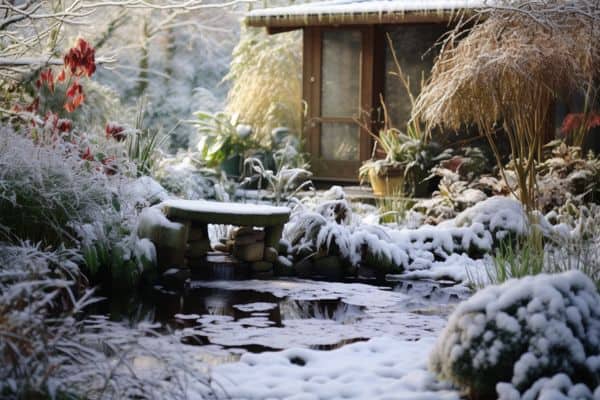
Winter Plant Preparation
Before you prepare your pond plants for winter, it’s a good idea to clear as many dead leaves and debris as possible out of the pond and cut back any wilted plants around the edge of the pond.
Removing decaying leaves and other debris that has fallen into the pond will help to reduce toxic gases like hydrogen sulfide building up in the pond over winter. These gases are toxic to fish.
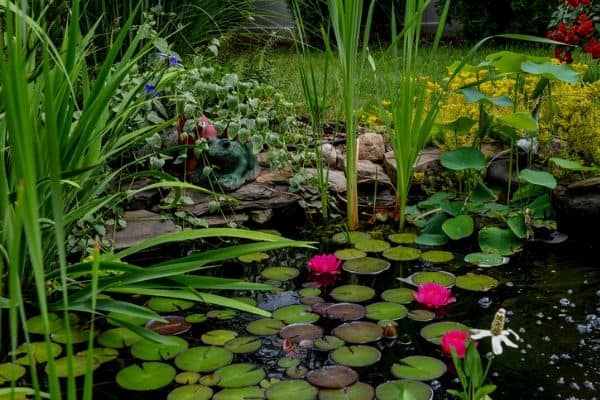
Hardy Pond Plants
Most hardy aquatic plants go dormant over the winter months and the foliage dies back, so you can stop fertilizing the plants as the weather starts to cool down.
Hardy water lilies are one of
the most popular pond plants and they don’t need much care over winter.
Just cut back any leaves that have turned yellow and submerge the pots in a deep section of the pond where the water is warmer over winter.
Lotus can be treated in the same manner and they’ll survive the winter as long as the tubers don’t freeze.
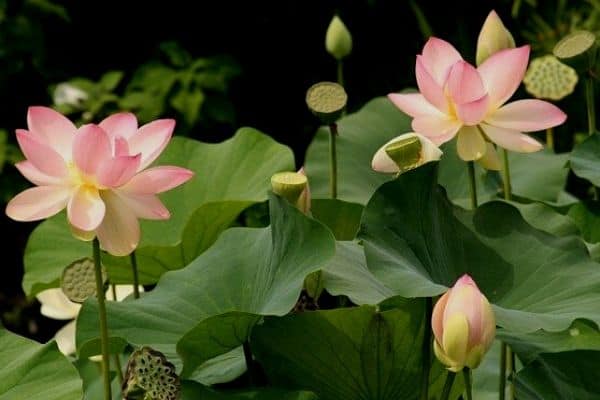
Non-Hardy Pond Plants
Non-hardy pond plants can be grown as annuals in areas with cold winter temperatures.
Floating
water plants like water lettuce and water hyacinth
can be removed from the pond
before winter and composted.
These plants are invasive in many areas so it’s important to ensure that they’re disposed of properly so that they don’t make their way into public waterways. [1]
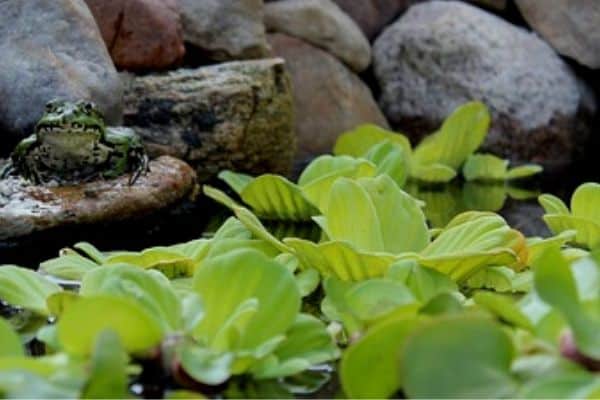
Tropical Plants
Tropical plants like canna lilies don’t tolerate cold winter
temperatures and need to be moved inside before the
temperatures cool down.
Other tropical plants like dwarf umbrella palm, taro
, dwarf papyrus
and calla lilies
can also be moved indoors during winter and they make attractive houseplants.
Place them on a saucer filled with water near a bright window to keep them healthy and happy over winter.
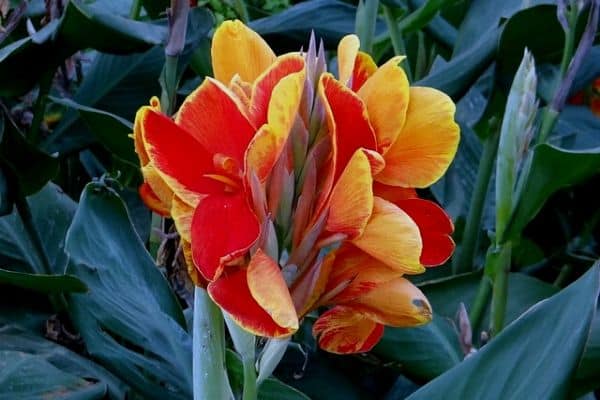
Submerged Plants
Submerged plants like hornwort and eelgrass will survive the winter if they’re fully underwater.
Any parts of the plant that are close to the surface of the pond may freeze, so you can sink them deeper into the pond or trim the tops of the plants.
You can also overwinter submerged plants indoors in an aquarium with good lighting.
Marginal Plants
Marginal plants that grow around the edge of the pond like pickerel plants and irises
can be cut back to water level to help them survive the winter months.
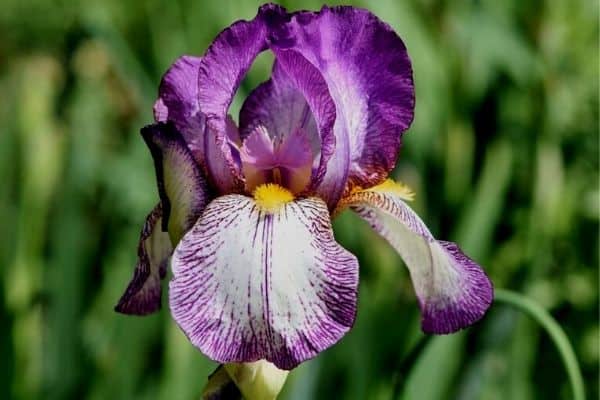
With some careful preparation you can ensure that your pond plants survive the cold winter months.
If you have a small garden pond, it should only take an hour or two to prepare your pond plants for winter and you can look forward to healthy, thriving aquatic plants once springtime arrives.
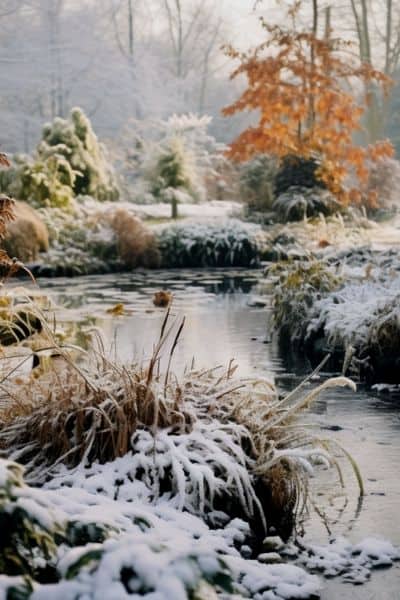
RELATED ARTICLES
- Winter Pond Maintenance
- 10 Best Bog Plants For Ponds
- 10 Ways To Decorate Your Pond
- 10 Flowering Pond Plants
- Creating A Pond Waterfall
How do you winterize your pond plants? Let me know in the comments below.
Are you on Pinterest? I have boards dedicated to Garden Ponds and Water Garden Plants that you may enjoy.
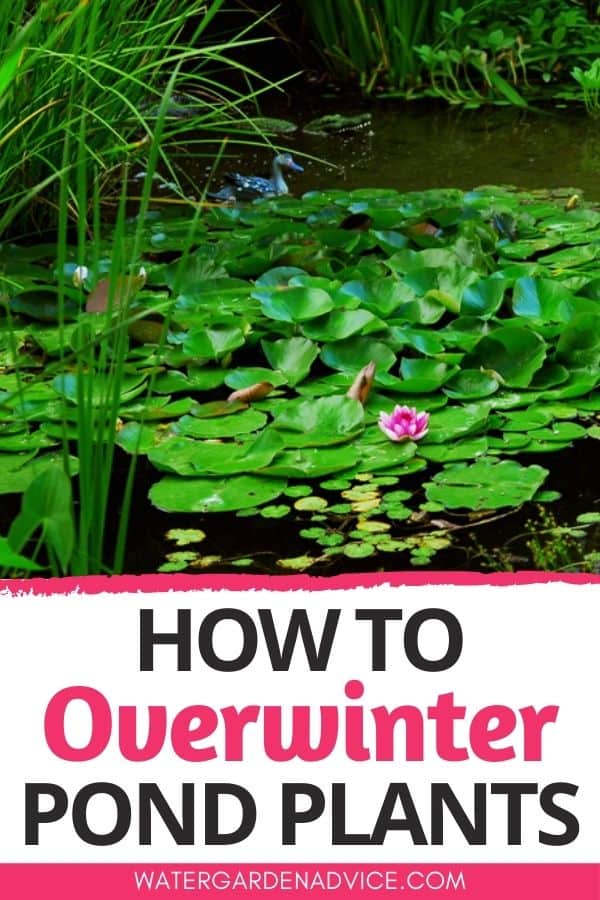
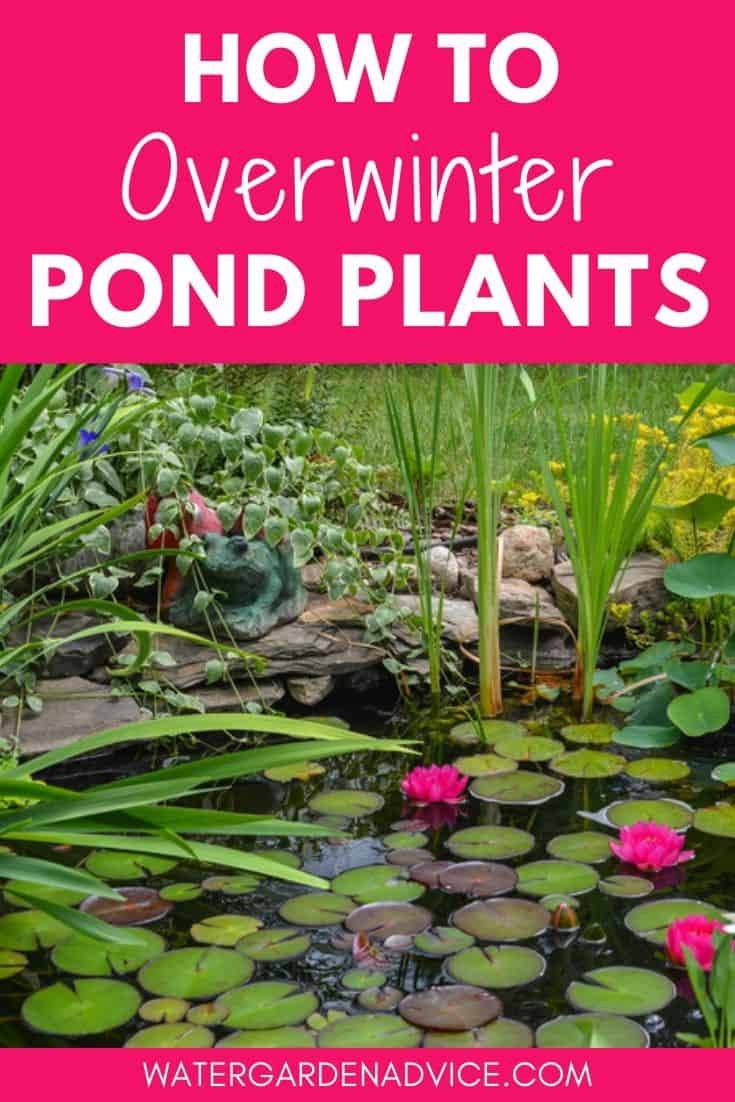


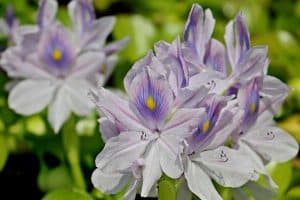
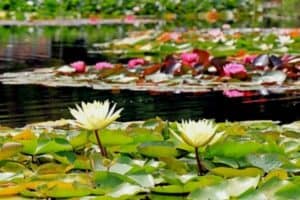
I have a small tub containing water plants. It is too small for these plants to survive in the winter as it is too small to submerge properly or deep enough. How can I store them indoors for the winter
Hi Adrienne, if the water freezes the plants won’t survive. You may have to move the plants indoors for the winter if you live in an area with freezing winter temperatures.